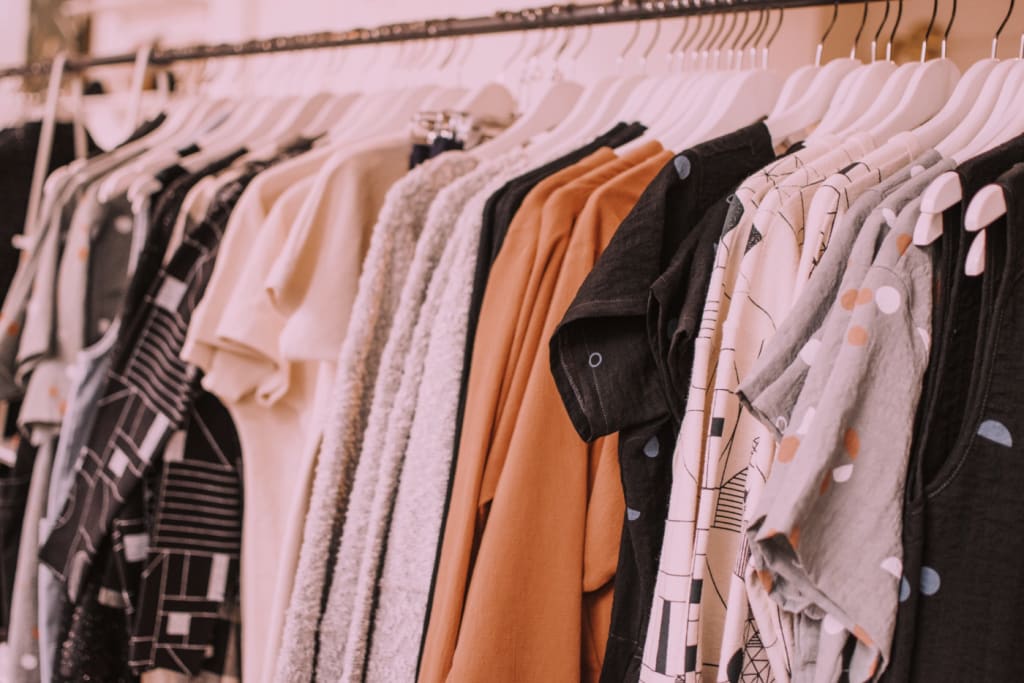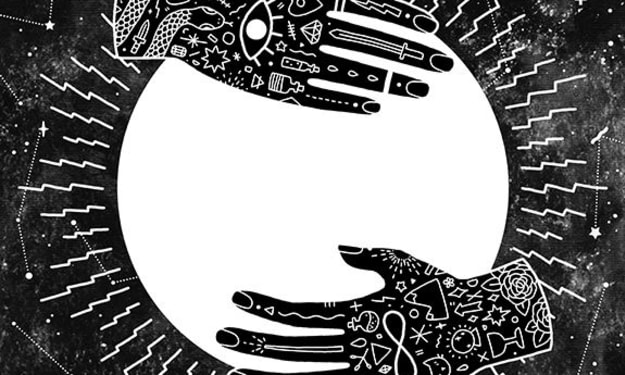Your Slavery Footprint—How the Choices You Make Every Day Harms People and the Planet
Western fast-fashion has drastic consequences on people and our planet.

As the new generation of young people, Millenials, Gen Z’s and the ones to follow, we are known for our fast fashion and trends that come and go quicker than night turns into day. Whilst some of us dwell on the fact that we may not have the money and/or resources that’s required to stay on top of these fast moving trends, we remain ignorant to the real-life, disastrous consequences of the industry that we continue to fuel and support.
As much as I’d like to, I won’t nag you about the millions of people across the world, including children, who are being forced into labour—sewing your Primark throw pillows and Topshop fashion, in order for organisations to keep up with our ever-changing trends. There’s plenty of information on the web surrounding these topics already. If you’re still in support of these organisations, despite this, it’s more likely because you want to rather than the fact that you’re not well-researched on the subject. However, I will use this time and my small corner of the internet to remind you of this form of slavery that is ignored by the western world, and the consequences that "fast-fashion" has on Earth.
There isn’t a single human in the western world who isn’t familiar with the term slavery. Whilst the concept is familiar to us, considering the significant history of black people, and the institutionalised form we see today—we often ignore evidence of slavery outside of the Western world, and put it down as something that’s not our problem and not our responsibility to fix. But of course, the flaw in these ideas is that we fail to recognise that it is us who keeps these large, torturous organisations alive and thriving.
Slavery (noun) - A condition of having to work very hard without proper remuneration or appreciation.
As a Gen Z myself, I firmly believe that my generation, along with Millenials and the generations after us, care more than anyone else has. We’re extremely sensitive to our treatment of others within our society, whether that be those who are marginalised and even animals. Thanks to young people, veganism and vegetarianism has skyrocketed, and is now considered trendy, leading to slow, but positive effects on our earth, our health and the meat industry. However, this courtesy still fails to extend beyond the walls of our isolated society. We can no longer put lack of media attention to blame for this, as the information is out there. The first stage is to admit that frankly, we are extremely self obsessed and are experts in making excuses for our destruction of other societies. We aren’t sensitive to these issues because it isn’t a reality for many of us, and we aren’t faced with it every single day.
There is around 40 million people in modern slavery and 152 million in child labour around the world, today; an estimated 71 percent of these people are women and young girls. I have many more statistics that I could throw at you, but this won’t change anything. There’s one thing I know for certain, we do care more than future generations ever have, and if anyone has the power to create a shift in this demand, it’s us.
Topshop is part of a much larger parent organisation named Arcadia Group, which is run by a man named Phillip Green; a man who has faced numerous controversies including being accused of multiple accounts of bullying and assault, and having policies within his organisation that allow for child labour to take place amongst his supply chain. Whilst people were outraged when women came out with their stories of bullying and sexual harassment at his hands, there wasn’t nearly the same reaction towards the slavery industry that his organisation has utilised for years, and is constantly exposed for. Of course, both matters are of equal importance, but if we have the power to cause a stir in the media surrounding the mistreatment of our people, we can do so for others who’s voices aren’t being heard.
Never forget the 2013 Rana Plaza collapse, in which 1,134 workers died and 2,500 were injured when the poorly built and dilapidated factory building collapsed in on them. Many of the textiles produced in that building, were for western retailers that we see on our high street.
As a member of younger generation of the population, I can see first hand that we are perhaps the most ignorant to recycling, and seem to have a distorted view of the process, how it works, and the lies we’ve been told by huge organisations regarding it. Have you ever heard of landfills? Landfilling is the process of taking our waste products (including those that we’ve been told to strategically separate), and disposing of them by burying them in layers of earth. Of course, this then leads to the waste ending up in our oceans, which only causes a multitude of further problems. The vast majority of the products we are encouraged to recycle, are poured into landfills anyway; that’s 79 percent of recycled goods in total, 91 percent of plastic, and an estimated 26 billion pounds of textiles and clothes, but wait… what if I told you that the final statistic only represents the United States…
We often disregard the importance of value to organisations. They want and need our money to continue running, and therefore they care about the values surrounding their organisation, and the opinions we have of them. Whilst we can verbally say that we don’t want to support the bad guys, we don’t practice what we preach—and no organisation wants to be known as the bad guy, particularly when there’s consequences surrounding such label. But this is where we have failed. We haven’t been issuing consequences to organisations that we know have wrong practices. We aren’t powerless. We have the power to force organisations to monitor and address slavery and child labour in their supply chains, and we are in full control of which organisations we choose to reward with our money. With the use of social media alone, we have the power to create trends that’ll exclude those organisations that we shouldn’t be supporting. Additionally, we have more control over what happens to our textiles once we’re done with them than we think. The sooner we disregard the need for revamping our wardrobe every season to stay on trend, the better.
If you’re ready to face your own truth and put things into perspective, take the slavery footprint test. One slave is too many, and ignorance is definitely bliss, but if you could see the damages that are caused by your decisions and your money, I’m sure you’d be prompted to change.
We aren’t the bad guys, but if we continue to support the bad guys, their destruction is our responsibility.







Comments
There are no comments for this story
Be the first to respond and start the conversation.